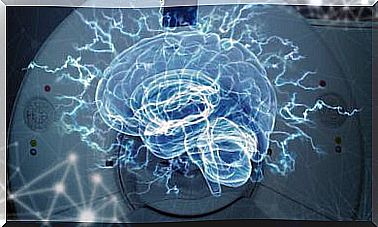Jim Fallon, A Good Psychopath

Jim Fallon’s story inspires many reflections since he is someone who can be classified as a “good psychopath”. His experience has very anecdotal overtones, but beyond this it raises great questions about what really determines the typical behavior of those who have psychopathic traits.
Jim Fallon is living proof that a psychopath does not necessarily have to become a criminal, or someone bent on manipulating and hurting those around him. It proves that the brain is much more than an organ that can be scanned and explored: what this complex organ can produce is not determined in advance.
Let’s start by saying that Jim Fallon is a professor of Psychiatry and Human Behavior at the University of California-Irvine (United States), he is also an adviser to the Pentagon. Part of his job was to do a scan analysis of the brains of murderers , comparing them with those of “normal” people. It all ended up being a big surprise for him.

The brain and psychopathy
Jim Fallon’s research group started from the idea that the brain of a murderer is observable by means of a scanner. It is not the first time in history that these biological determinisms have been discussed. In criminology, prototypes of the criminal have been made several times, based on his physical appearance.
This time it was no longer based on appearance as such, but on the anatomy of the brain. The idea has been put forward that the brain of psychopaths has less gray matter in the frontal areas. This is related to empathy and understanding of the emotional world of other people; so if there is less gray matter, then there would be less room for empathy.
Likewise, the amygdala is also said to be smaller in those with psychopathic features. This is associated with feelings of fear. The smaller size would imply that there is less capacity to experience fear.
Generally speaking, a psychopath is someone who is incapable of loving, lies, and masterfully manipulates others. They are usually charming and are very cold in situations that stress others. They do not know what guilt or regret is.
Jim Fallon and a big surprise
To do their research, Jim Fallon and his team relied on brain scans of several well-known psychopathic killers. In this type of experiment, a control group is always taken as a reference point, which in this case was a group of brain scans of “normal” people. Fallon took his own family as a control group.
Everything was going on as usual, until one particular scan looked to Fallon like a typical psychopath. The pattern was very clear and perfectly matched the pathological pattern. The big surprise came when he discovered that this scanner corresponded to his own brain.
After that surprising discovery, he investigated with his mother and thus learned that within the paternal family there were at least seven people who had committed murders. Several of them had committed very violent crimes, such as cold-blooded killings with axes. What was wrong with him then?
Anatomy and culture
Although Jim Fallon remains a believer in biological determinism, his own experience led him to wonder about that premise. He concluded that for this criminal and sociopathic behavior to occur, it was not enough to have a brain predisposed to it. According to their conclusions, what is truly decisive are childhood experiences.
Fallon says he has not known a single case of murderous psychopaths that was not accompanied by a tragic childhood. In particular, the fact of suffering humiliation, beatings and mistreatment, in his opinion, was the decisive factor for these people to end up dedicated to the crime, without the least amount of guilt.
He thinks that, unlike others, he received a lot of love and good treatment from his parents. He says that is why he did not develop the patterns of the typical psychopath and did not become a murderer, but a prestigious scientist. However, after his discovery, he acknowledges that he himself has great difficulty experiencing empathy.
There are no definitive conclusions in this regard, but most psychiatrists, and most studies, agree with Fallon’s assessment. It is not biology as such, but it is in combination with the environment, culture and the symbolic world that ends up giving shape to what a person is. Deterministic views are often incomplete.









